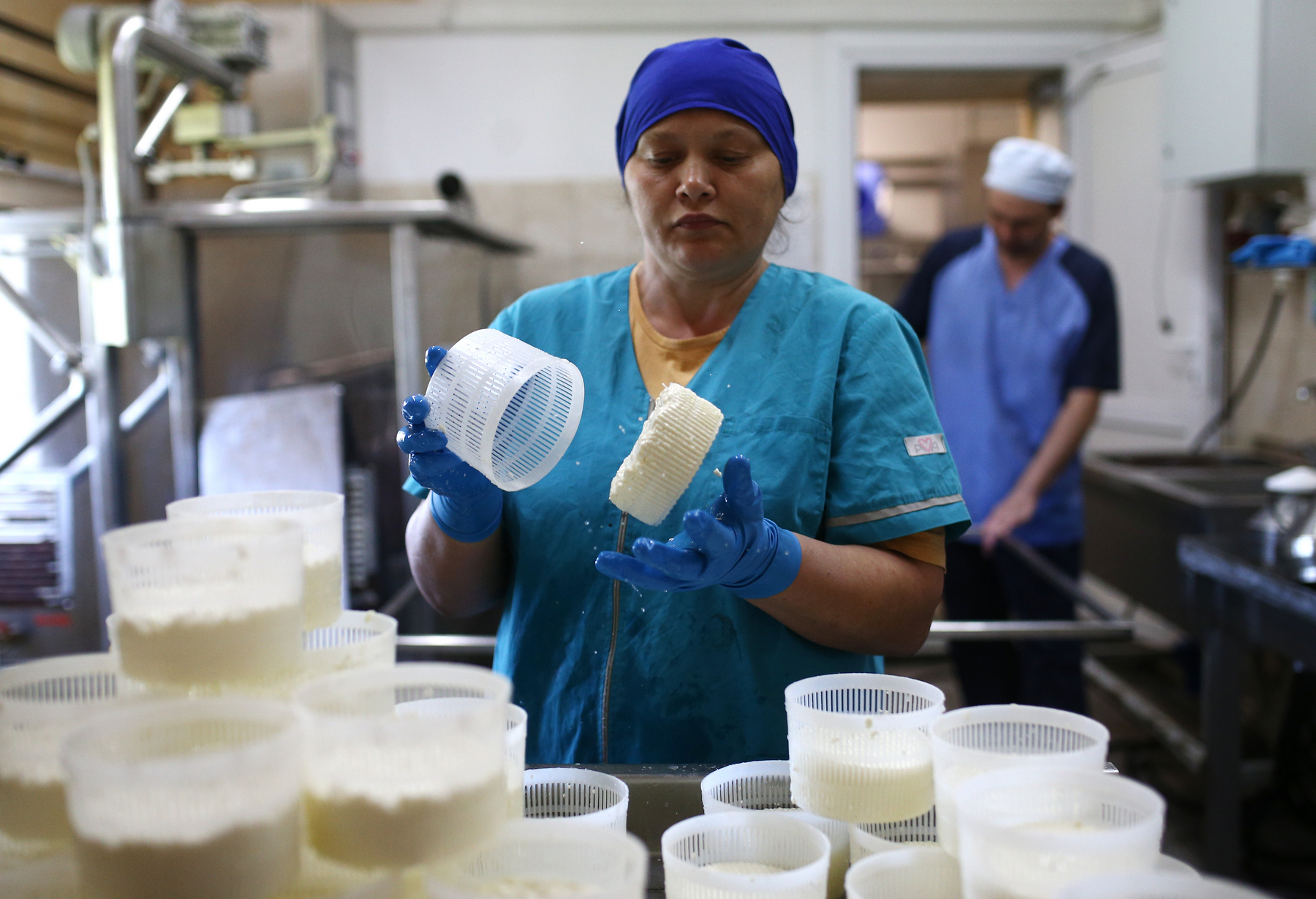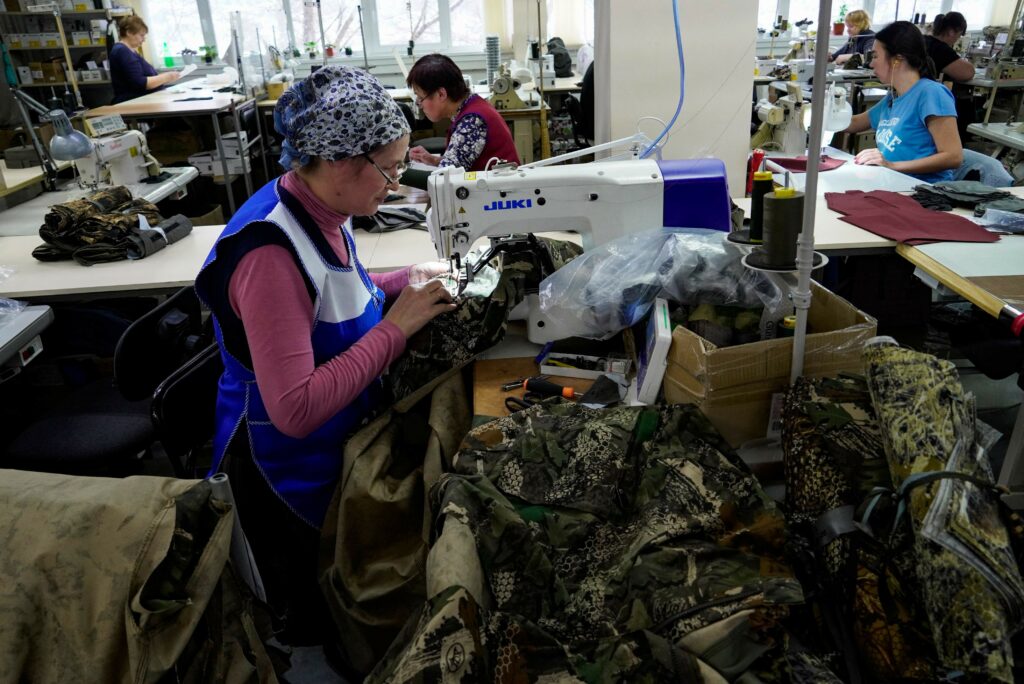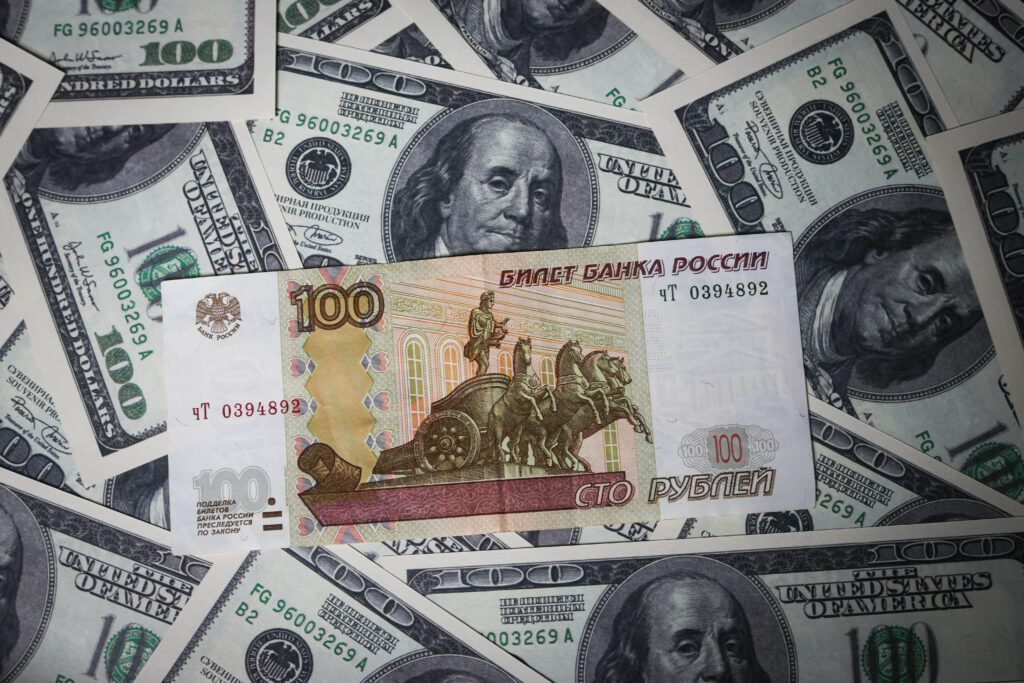The need for support for small and medium-sized enterprises (SMEs) is discussed by high-ranking officials in Russia as extensively as anywhere. But this has not translated into any significant improvement of the situation for Russia’s SMEs. Quite the opposite, in fact. Could it be that Russia simply is not the right country for such entrepreneurship?
SMEs account for 53% of GDP in the US and for over 50%-60% of GDP in many EU countries (such as Italy, Spain and Germany). In Russia the rate has long been hanging around no more than 22% and declining. At the same time, 41% of SMEs in Russia operate in wholesale and retail trade. No more than 7% of SMEs are in manufacturing. Traditionally, SMEs have been ephemeral: gone once local officials interfere.
The number of micro-enterprises (with no more than 15 employees and annual gross [pre-tax] revenues of up to RUB 120 million) has seen scant growth, despite whatever support politicians express. The tally grew by 1.6% to about 5,675 million businesses in the three years before the coronavirus pandemic, while the number of small enterprises (up to 100 employees and revenues of up to RUB 800 million) actually declined by 16% to just over 224,000. This plummeting number of small enterprises can partially be explained by regulatory agencies’ successful fight against ‘fly-by-night companies’. Over these three years, the number of people employed by SMEs fell by more than 3% to 15.3 million. Meanwhile, according to the government’s plans, SMEs should account for 40% of the country’s GDP by 2030 (i.e. almost double), and the number of people employed in the sector should increase by almost 6 million, although the total number of employed citizens (this figure now stands at 70.3 million) will decrease due to unfavourable demographic factors. According to the cited plans, there should be a rise in the share of SME exports to 10% of total non-commodity exports. The share of SMEs in public procurement is also expected to skyrocket.
On the surface, the funds allocated by the government to support SMEs look impressive. Even a special state SME Corporation was established in 2015. A special SME bank was founded to finance small businesses. Additionally, each region has its own regional credit guarantee organisation. In 2014−2020, the total volume of state guarantees amounted to RUB 327 billion, the number of collaterals and guarantees reached 15,800, and the amount of guaranteed financial aid reached RUB 410 billion. However, only 29,000 jobs could be created, which speaks volumes about the effectiveness of such state support.
In the face of the pandemic, the Russian authorities made additional efforts to support the economy, including SMEs. However, these efforts were more modest compared to developed countries. Small businesses were promised repayment holidays of up to six months if the borrower faced a loss of income of over 30% due to the pandemic, reduced lending rates (8.5% for up to three years) and interest-free loans for up to six months for the payment of salaries in the affected sectors under the governmental programme (for a limited list of sectors). A six-month deferral of all taxes except VAT was granted as well as a six-month deferral of insurance contributions for one category of entrepreneurs and cuts to insurance contributions from 30% to 15% on salaries above the minimum wage for the rest. No direct financial aid or payments were offered.
SME facilitators
Having analysed the activities of the SME Corporation, the Accounts Chamber concluded that the organisation had had only a marginal impact on SME development, though it met almost all of its performance targets (on paper). In 2015−2020, the SME Corporation provided loan guarantees to 34,000 SMEs (as little as 1% of the total number of SMEs) worth RUB 0.7 trillion, which provided a consolidated funding volume of RUB 1.4 trillion. However, a number of beneficiaries were affiliated with large businesses. The financial instruments provided by the SME Corporation showed another irregularity. Although SME activities cover different sectors of the economy, the funds were most often distributed, for some reason, only among a narrow category of small businesses operating in the fields of sports, wastewater collection and treatment, recycling and waste collection, treatment and recovery.
On the other hand, the corporation did not cut corners when it came to its own payroll policy. Personnel costs and social contributions accounted for more than 90% of administrative expenses. The average monthly salary of employees (excluding board members) was about RUB 380,000. This is twice the average salary in the financial and insurance sector in Moscow. The board members earned about RUB 3.3 million.
The SME Corporation was meant to resemble the U.S. Small Business Administration, which has branches in every state in the United States and in many major cities. The Russian Corporation has no regional networks. It works only at the federal level and therefore does not have detailed, in-depth information about the situation of SMEs on the ground, although clearly a small business is primarily a ‘local story’.
Every little bit helps
Last year, one of the most important sources of financing for small businesses was not public aid or even money from private banks but money received from entrepreneurs’ family or friends, as reported by 27% of SMEs. In other words, loans from private individuals proved to be the main source of funding for entrepreneurs. Bank loans were the second most popular source of funding, with 26% of entities taking them. Some 12% of SMEs used private investments. Almost 10% of SMEs applied for bank loans, but as individuals rather than as legal entities; 14% received loans on preferential terms, while 4% received interest-free loans as part of the state COVID-19 relief programme.
As a rule, the money was consumed by running costs (payment for components, goods or services, or wages). Nearly 15% of SMEs borrowed money for the purpose of what could be considered scaling up production. Thus, restricted access to bank loans among small businesses hinders the development of SMEs in Russia. Only a fifth of Russian SMEs have at least one outstanding loan, while, according to business ombudsman Boris Titov, the average is 42% in developed countries.
Russian banks have a limited risk appetite and prefer not to get involved with small businesses. They are even less interested in early stage companies, as these fail to be classified by the banks’ risk assessment systems. In Russia, it is much more profitable for bankers to deal with government agencies, or with consumer and mortgage lending, or to make money on currency speculation through carry trading (an interest-rate-based investment strategy involving borrowing at a favourable interest rate and trading for a higher-yielding asset). The SME Corporation should have encouraged banks to provide unsecured loans to small entrepreneurs, but it failed to do so. On top of that, the inertia of the SME Corporation is often coupled with a lack of awareness of available public relief measures. Moreover, due to the overall distrust in the state, many prefer not to get involved with it because of excessive reporting requirements and red tape, as well as fear of inspections by supervisory authorities and, as a consequence, criminal (often fabricated) charges. In addition to the poor availability of loans, business is concerned about a number of other problems specific to the Russian economy and investment climate.
Small businesses face a big burden
Entrepreneurs may complain about the heavy tax burden in many countries, but in Russia this is exacerbated by unpredictable fiscal policies, including the invention of all sorts of indirect charges and non-tax levies. Russian SMEs live under legal regulations that change rapidly and randomly. For example, a few years ago the tax authorities introduced an obligation to acquire online cash registers for the sake of stricter control over entrepreneurs’ incomes, which inevitably led to an increased financial burden. Entrepreneurs had to purchase special terminals out of their own pockets, as well as so-called fiscal memory devices, which had to be regularly replaced. In addition, SMEs were hit hard by the VAT increase of 2 percentage points (from 18% to 20%). As a result, entrepreneurs faced price hikes for purchased raw materials as end consumers. No one will compensate them for the extra cost. The Russian government has also recently been keen to bring in mandatory labelling for all new types of goods such as shoes, medicine, car tyres and so on. Everything is done in the name of tighter control over the sales volume of literally every entrepreneur. Such police-like behaviour, which is the norm in Russia, lowers morale.
Let us take a look at an example of new regulations which suddenly appear and bring unplanned cost. In the summer of 2020, a new version of the Rules for Cold Water Supply and Discharge came into force ‘all of a sudden’. As a result, the tariff burden on organisations located in apartment buildings increased by at least 50%.
With taxes, small businesses in Russia are constantly manoeuvring between different tax regimes. If you are to pay social contributions and wages according to all the regulations, they add up to around 40%. Few SMEs can afford this in the services industry and a number of other sectors. That is why many pay wages under the table. Tax evasion can assume soft forms: one registers as a sole proprietor to limit the tax rate to 6% and can easily cash out money (it is more expensive for other legal forms) and hand it to employees as wages. The payment of taxes on these wages (personal income tax) is up to the employees themselves (no one pays taxes in such cases, since payment is made in cash). There also exists a simplified taxation option. Its obvious advantages are simplified accounting rules, the choice between two unified tax rates (a 6% tax on gross receipts or a 15% rate on profit before income tax), a reduction in taxable income by the value of some assets, etc. However, the disadvantages include numerous restrictions on the type of activity, a limited list of expenses that can be deducted from taxable income, no possibility to open branches, the risk of losing counterparties paying VAT (they will be unable to refund paid VAT), and the lack of a possibility to deduct past losses from the taxable base, etc.
Entrepreneurs also complain of criminal charges brought against businesses, sometimes with the aim of extortion or misappropriation in favour of competitors. Most of the criminal cases against businesses are related to public procurement; sometimes, only because of some minor irregularities in the increasingly complex reporting and regulatory environment. It is getting to the point that many people are simply afraid to deal with public procurement for fear that an investigator might interpret certain operations under contract law as large-scale fraud. Russia’s judicial system is far from perfect, which is detrimental to the investment climate in Russia. The tariffs of natural monopolies is another problem, as they are rising faster than inflation and lack transparency.
SMEs are also concerned about the high degree of business monopolisation, which has engulfed virtually every sector of the economy, from trade to state and municipal supplies. SMEs find it difficult to hack their way through battalions of monopolists, which are most often fused with officialdom at different levels. Small businesses in Russia are predominantly involved in trade. Still, the formal limitation on the maximum allowed market share of 25% of a given retail chain in a given municipal entity is not always respected.
What can be done?
What measures can be taken to reform policies targeting SMEs? They can be divided into two broad categories. The first group includes purely technocratic measures which are feasible within the framework of Russia’s prevailing socio-political relations and political regime and require neither substantial institutional reforms (which entail both political preconditions and consequences) nor political reforms. Clearly, such reforms have their limitations. The second group involves a comprehensive reform of the socio-political space in Russia, which cannot be expected in the short run.
Among the technocratic reforms, a number of measures to reduce the fiscal and overall financial burden can be proposed in the first place. First of all, a targeted reduction of the tax burden should be worked out across a range of industries, especially those affected by the pandemic. The simplified tax regime should be expanded. In the case of certain SMEs, payroll should be exempt from taxes and replaced, for instance, with a turnover tax. The tax regime for SMEs should become more uniform in order to prevent business people’s endless flitting between different forms of entrepreneurship, which encourages shadow dealings or artificial fragmentation of businesses.
Fines imposed by all kinds of regulatory and supervisory bodies pose a serious problem for SMEs and can lead to bankruptcy. The following steps should be taken:
- equate administrative fines for small businesses to those for individual entrepreneurs, which would result in a reduction of fines for small businesses;
- adopt legal regulations that would limit the growth rate of tariffs levied on SMEs to no more than the rate of inflation;
- introduce a preferential tax regime for certain sectors with a large share of SMEs, especially sectors most affected by the pandemic (including VAT cuts);
- limit the increase in property taxes depending on the cadastral value (sometimes artificially inflated by local authorities in order to increase tax revenues) to a rate no higher than the rate of inflation.
Finally, a complete rethink of financial and credit support is needed against the backdrop of the inefficiency of the SME Corporation, especially for investment loans (i.e. for SME development), preferably offered at a rate no higher than the Central Bank’s key rate. This should be a long-term strategy (10 years or more). Project-tied lending at preferential rates could be introduced. Collateral requirements for SMEs should be eased; as of today, up to 40 different documents are required. SMEs are also in need of incentives for leasing land and other real estate and effective forms of fiscal support for developing businesses (start-ups).
Administrative measures could include increasing the minimum share of SMEs in the public procurement scheme with strict monitoring of bidders’ lack of affiliation with big companies. It is also necessary to cut red tape and do away with regulations that justify all sorts of inspections and fines, to liberalise rules for SMEs on trading in excise goods (currently there are limitations as regards the minimum required floor space), to allow online trading and to develop rules to facilitate SMEs’ access to digital platform services (for example, commission fees for SMEs moving sales online could be subsidised by 50% or more, as is already the case in a number of regions).
Political reforms are a must
Among more general — institutional — measures, judicial reform including protection of owners’ rights is among the priorities. In principle, judicial reform, as well as an effective fight against corruption, is also possible in non-democratic systems — for example, based on the principles of meritocracy (as shown by the example of South-east Asian countries). But this requires commitment and a political will, which in contemporary Russia has so far only been extended to initiatives within the framework of modest technocratic improvements.
A remarkable improvement of the investment climate (including for SMEs) is impossible without civic oversight over ‘the uniformed agencies’, which have proliferated over the past two decades. The siloviki should be deprived of their right to harass businesses for no reason whatsoever or out of self-interest, to fabricate criminal charges, etc. However, this is hardly possible without genuine political competition and media freedom in Russia.
Widespread awareness-raising is also important. Entrepreneurship has to be rehabilitated in the eyes of ordinary citizens, cleared of the suspicions that have taken root since Soviet times. A business person is not a ‘dealer’, ‘speculator’, ‘crook’ or ‘swindler’ but a person who plays an important role in generating national wealth and creating jobs. It should be no less prestigious and honourable to become a business person than to join the ranks of the siloviki or officialdom.
This requires a revolution in public consciousness which must be preceded by the desacralisation of the state and its omnipotent bureaucracy. We need films, TV programmes and news coverage devoted to business success stories. If, for some reason, an entrepreneurship course cannot be included in the school curriculum, such courses can take the form of interest groups that meet after hours. At a regional level, entrepreneurial training should be organised as part of retraining courses (including for the unemployed). Job placement centres can and should assist in setting up small businesses, including in a one-stop-shop format, help with registration and even search for initial capital. Businesses should be encouraged to be more actively involved in the work of legislative and municipal bodies through advisory councils. A rule should apply that no regulation or law affecting the entrepreneurial community can be passed without prior consultations with its representatives, primarily with relevant self-regulatory organisations.
However, this is an all-or-nothing approach. Gradual attempts to improve the conditions for small and medium-sized businesses in Russia can be undertaken right now. After all, the expansion of SMEs will lead to an increase in the size of the middle class itself, which will call for more fundamental reforms in the future.
*This article is part of the ‘Reforms’ series prepared by Riddle in partnership with Reforum project.
** Related topics:










